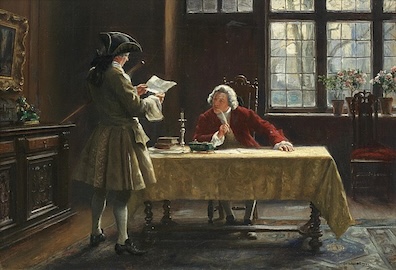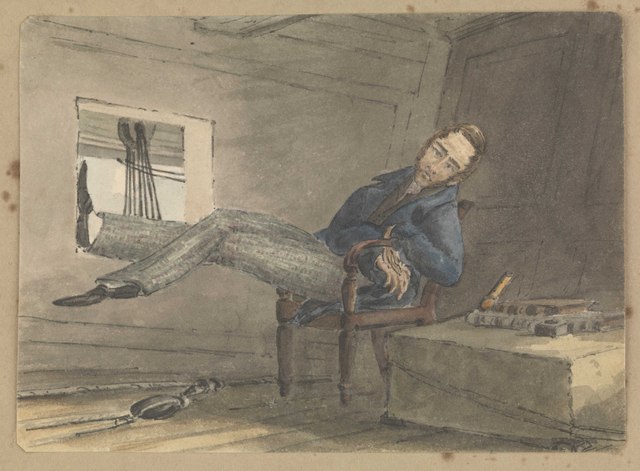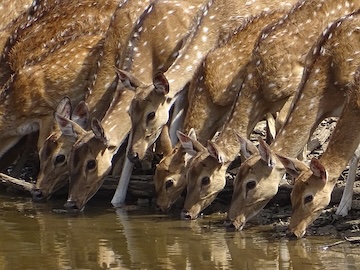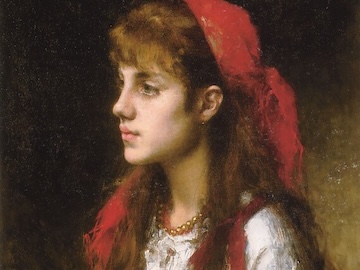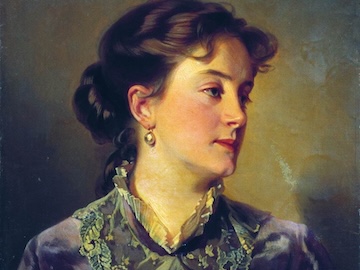13 November 9
I have added a new post to the Copy Book, A Word of Advice.
Ben Jonson, the playwright and friend of William Shakespeare, left behind at his death in 1637 a diary of thoughts on a variety of subjects, from personal morality to literary criticism. In this short extract, he reflects on what is required of anyone who offers advice to others. A counsellor, he said, must have a well-deserved reputation for absolute honesty; he must never talk down to the person he is advising; he must not offer advice on the spur of the moment; and he must be wary of advising people he does not know well.
14 November 8
I have added a new post to the Copy Book, A Hot Tip. It is taken from Benjamin Disraeli’s novel Coningsby, published in 1844, the first of his three ‘political’ novels together with Sybil (1845) and Tancred (1847).
All the talk in the House of Commons at this time was of free trade, and in Coningsby Disraeli, who was not a free trader, poked fun at the movement. He did so not by rubbishing it, but by pretending to agree with it in a matter so trivial that it was a very successful lampoon.
Over the next few years, the country’s leading free traders, Richard Cobden and John Bright, scored some notable victories in the Commons, and in 1860 the crowning glory came with the Cobden-Chevalier treaty, a long overdue entente cordiale with France. Disraeli was among those who vigorously objected to it, and sought to tangle it in amendments; but on February 21st, 1860, John Bright stood up in the Commons and read out this same passage from Coningsby. He read with particular relish the bit where Disraeli had declared, tongue in cheek, that he had proved beyond question the value of free trade with France.
15 November 8
I have added a new post to the Copy Book, Rest Cure.
In 1864, Charles Dickens wrote to his Swiss friend M de Cerjat, whom he had met in Lausanne. Dickens told him about his newly-remodelled drawing room, with which he was very pleased, and invited him to England to see it. An association of ideas then led him to talk about France. Here was another way in which he had been able to enhance his working life.
16 November 7
I have added a new post to the Copy Book, The Water Truce.
This is a short extract from The Jungle Book (1894), one of Rudyard Kipling’s most enduringly popular stories. Set in India (of course) it tells of the little boy Mowgli, who is brought up by the wolf-pack in the forests, lakes and wilderness of what is now Pench National Park in Madhya Pradesh, near Seoni. In this scene, the jungle is experiencing a severe and prolonged drought. Such is the threat to all the Jungle animals that Hathi, the elephant, has done his duty and announced the Water Truce, during which no animal may hunt another. It is a necessary law, but not one that Bagheera, the black panther, finds easy to keep.
17 November 5
I have added a new post to the Copy Book, A Great Writer.
In August 1880, Russian novelist Fyodor Dostoevsky (1821-1881) was finishing his novel The Brothers Karamázov at his dacha (summer retreat) in the spa town of Staraya Russa, a few miles from Veliky Novogorod in northwest Russia. He found the time to respond to a letter from Nikolai Osmidov, who had asked him what reading he would recommend for Osmidov’s twelve-year-old-daughter, and the first novelist that Dostoevsky named was none other that Scotland’s own Sir Walter Scott.
18 November 5
I have added a new post to the Copy Book, Believe Me.
The people who wrote to Russian novelist Fyodor Dostoevsky (1821-1881) frequently asked him difficult questions. In 1878, one mother wrote to him asking how best to bring up her son, so that he understood good and evil. Dostoevsky was overwhelmed by the task she set for him, but he rose to it and replied with a letter of real sensitivity and common sense. His counsel could be summed up in the words of English statesman Edmund Burke, in his Letter on a Regicide Peace (1796): “Example is the school of mankind, and they will learn at no other”.
